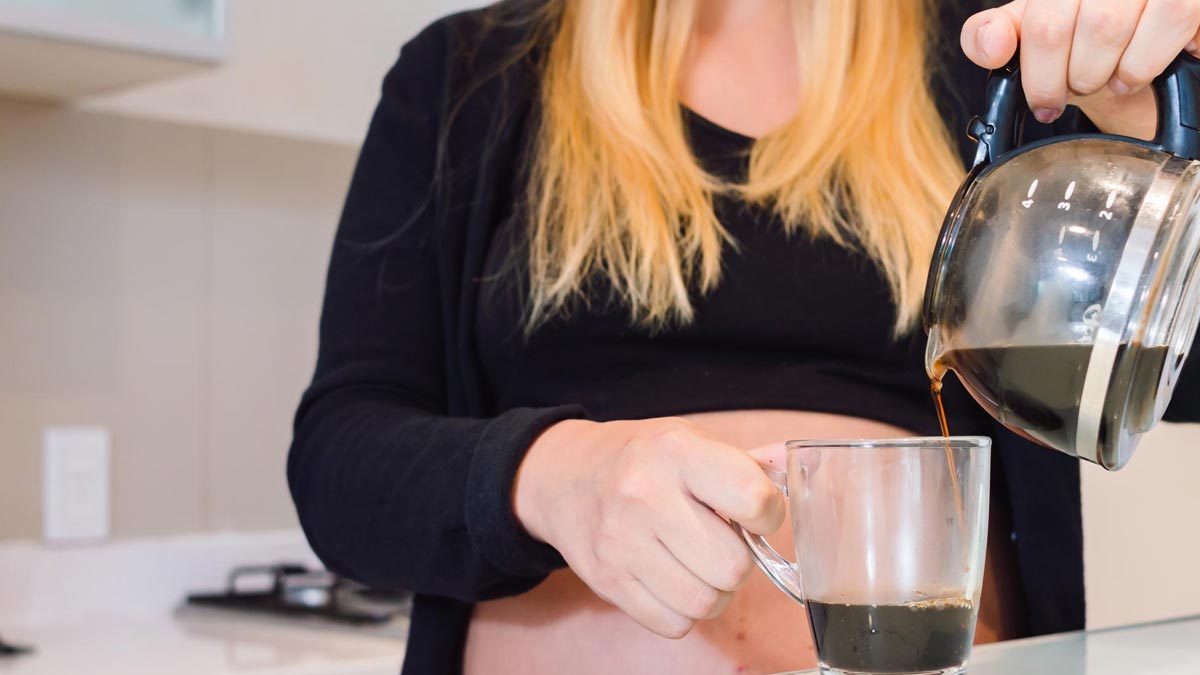
Pregnancy is a time of immense joy and anticipation, but it's also a period marked by careful consideration of what goes into your body. Among the substances that require close attention is caffeine, a widely consumed stimulant found in various foods and beverages. While it's tempting to reach for that morning cup of coffee or indulge in a chocolate treat, understanding the impact of caffeine during pregnancy is crucial for the health of both the mother and the developing foetus.
Table of Content:-
We spoke to our expert Dr Shweta Jaiswal, Senior Dietician - Sharda Hospital to shed some light on the safe limits and risks linked with excessive caffeine consumption during pregnancy. Here is what she shared with us.
Understanding Safe Limits of Caffeine Consumption During pregnancy
Research indicates that caffeine metabolism slows down significantly during pregnancy, which means that the effects of caffeine are prolonged in the body. While the exact threshold for safe caffeine consumption during pregnancy is still debated, health organisations such as the NHS recommend limiting intake to no more than 200mg per day. This translates to roughly two mugs of instant coffee. Adhering to this guideline can help mitigate potential risks associated with excessive caffeine consumption, including miscarriage, low birth weight, preterm birth, or stillbirth.

Also Read: Beat the Heat: 7 Refreshing Foods to Keep You Cool During Summer
Risks Linked with Excessive Caffeine Consumption During pregnancy
One of the primary concerns with consuming too much caffeine during pregnancy is its potential link to adverse pregnancy outcomes. While conclusive evidence is lacking, observational studies suggest a correlation between high caffeine intake and increased risk of miscarriage. Additionally, caffeine is a diuretic, meaning it can lead to increased urination, potentially causing the loss of important minerals like calcium. Furthermore, excessive caffeine consumption can disrupt sleep patterns for both the mother and the foetus, which is vital for overall health and well-being during pregnancy.
Identifying Sources of Caffeine
"It's essential to be mindful of the sources of caffeine in your diet, as it can be found in a wide range of foods and beverages. Coffee is perhaps the most well-known source, with variations in caffeine content depending on factors such as serving size, brand, and brewing method, " said Dr Jaiswal.

"For instance, a 375 ml (12 fl oz) cup of regular coffee can contain as much as 260 mg of caffeine, while a 500 ml (16 fl oz) mocha may have around 175 mg. Tea is another common source of caffeine, with caffeine content ranging from 30 mg to 130 mg per cup. Even seemingly innocuous treats like chocolate can contribute to caffeine intake, with milk chocolate containing 1 mg to 15 mg per 30 grams (1 ounce), and dark chocolate containing 5 mg to 35 mg," she added.
Also Read: Navratri 2024: 6 Benefits of Ghee Roasted Dry Fruits for Mind and Body
Soft drinks and energy drinks are additional sources of caffeine that may contribute to overall intake. It's important to read labels carefully and be mindful of portion sizes to accurately assess your caffeine consumption throughout the day. Opting for caffeine-free alternatives or limiting intake to within recommended guidelines can help mitigate potential risks and promote a healthier pregnancy.
A Final Word
While moderate caffeine consumption during pregnancy is generally considered safe, exceeding recommended limits can pose risks to both maternal and foetal health. By staying informed about sources of caffeine and monitoring intake accordingly, expectant mothers can make informed choices that support a healthy pregnancy journey. As always, it's advisable to consult with a healthcare provider for personalised guidance and recommendations based on individual circumstances.
How we keep this article up to date:
We work with experts and keep a close eye on the latest in health and wellness. Whenever there is a new research or helpful information, we update our articles with accurate and useful advice.
Current Version